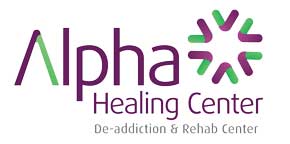Sleeping Pills Addiction Rehab Centre
- Drug Addiction Treatment
- Sleeping Pills Addiction
Fighting Sleeping Pills Addiction
Are you finding it hard to fall asleep? Many Indians are grappling with the same problem. The number of people who can’t get rest without using sleeping pills has been on the rise lately.
While most people use sleeping pills to treat insomnia (lack of sleep) it’s sustained use can lead to dependency.
What Are Sleeping Pills?
Sleeping pills are drugs doctors prescribe to treat insomnia and are often taken shortly before bed. Common sleeping pills include:
● Antidepressants
● Benzodiazepines
● Over the counter sleeping pills

Side Effects Of Sleeping Pills
Long-term use of insomnia medications can lead to physical dependency. Your body will adapt to the presence of these substances and lower their impacts leading to a condition known as tolerance. At this point, you will need to take higher amounts of the pill and more frequently to fall asleep.
Tolerance is also the main cause of withdrawal symptoms. These are uncomfortable physical and psychological state sufferings you will experience when you fail to take your sleeping pills.
Sleeping pills use disorder is about compulsive pill-seeking behavior that persists despite your full understanding of the negative effects of the substance on your life. In the short term, dependency and tolerance to sleeping pills can cause many detrimental health effects, including:
- Constipation
- Balance difficulties
- Headaches and abnormal dreams
- Heartburn and abdominal pains
- Confusion and concentration problems
- Weakness and uncontrollable shaking
The long-term effects of sleeping pill use and abuse are more severe. They can cause parasomnias, among other conditions. Parasomnias sis is a condition that can cause you to talk, work, or eat and do other things without being aware that you’re doing them. Picture this; you’re taking your bath, cooking, or even driving a car while unaware that you’re performing such tasks-fatal accidents are imminent.
The problems caused by the abuse of sleeping pills can become worse if you use the pills with other addictive substances. Drugs such as alcohol, benzos, and opiates also produce sedative effects. When consumed together with sleeping pills, they are likely to cause dangerous drops in respiration. This can lead to coma, brain damage, and even death.
Moreover, while sleeping pills are meant to treat insomnia, other mental illnesses may co-occur because of long-term abuse of these substances. These mental conditions include:
- Hallucinations
- Depression and anxiety
- Memory loss and abnormal thinking
- Motor function impairment
- Slurred speech
How Do You Know If You Have a Sleeping Medicines Addiction?
The common signs that might indicate you have developed a dependency on sleeping pills include:
● You can’t imagine coping or falling asleep without the pills
● You experience severe withdrawal symptoms if you attempt to cease using these substances
● You manipulate your physician into prescribing more tablets
● You are a doctor shopper (changing doctors to get more pills)
● You can’t manage to reduce the amount you take
● The groggy effect of the pills is becoming more and more enjoyable to you with time.
Signs And Symptoms Of Addiction To Sleeping Pills
Although sleeping pills have legitimate uses, they also carry the baggage of side effects, among other significant risks. The ability to recognize the signs and symptoms of sleeping pill abuse can save your life or that of someone you love. The signs of sleeping pills use disorder include:
● Unusual euphoria
● Slurred speech
● Difficulty to focus
● Uncoordinated movements
● Impaired memory
The psychological, behavioral, and physical symptoms that result from long-term use and abuse of sleeping meds include:
● The need for larger doses to get sleep
● Ignoring educational professional familial and social obligations
● Loss of interest and previously enjoyed hobbies
● Isolating yourself from family and friends
● Trying to quit the use without success,
● Severally
● Irritability and mood swings
●Severe withdrawal symptoms including, seizures, panic attacks, vomiting, and excessive sweating
What Should I Do If I Think I Have a Problem With Sleeping Pills?
If you or someone you love exhibits signs and symptoms of sleeping pills use disorder, it might be time to get help. Both immediate and prolonged use and abuse of sleeping pills are enough for you to exercise caution and seek treatment immediately. Contact our in-patient rehabilitation centre for more details.
Treatment Options For Sleeping Pills Addiction
Treatment programs for sleeping pills dependency offer you tools you need to stop depending on these substances in order to sleep or feel normal. Some treatment plants begin with detoxification and ends with behavioral therapies. Other programs are the components of 12 step treatment plans that help you keep off pills even after the residential (inpatient) treatment potion is over.
Whatever the treatment strategy is, the shared goal is one: to get you off sleeping pills and begin living your life normally.
Inpatient (Residential) Vs. Outpatient Sleeping Pills Addiction Treatment In Rehab
Residential (commonly known as an inpatient) treatment helps you achieve distance from the pills and their underlying causes. This type of care largely demands that you live in the treatment facility during the entire treatment period. However, some treatment facilities permit day trips to school or work.
The most important time, when help is needed the most, is the nighttime. This is the time when you need to sleep. In inpatient care, you will spend a bigger portion of your night with therapists and doctors working to ensure you revive your normal sleep behavior and patterns. The aim here is to help you fall asleep normally while fighting insomnia medications.
Outpatient sleeping pill treatment programs, on the other hand, are less intense and unstructured. This makes a patient more likely to relapse.
Outpatient care is where you attend treatment sessions during the day but spend your nights at home. This type of care is highly flexible and is meant to fit into your daily program. You will continue to attend school, work, and take care of your family while undergoing treatment.
However, receiving treatment and going back home to the same triggers increases your probability of relapse. Moreover, at night (the time when you need the helping hand of your therapist the most to fall asleep normally), you are alone.
Do You Need Inpatient Rehab Care?
While you may not be a heavy sleeping medicine user, residential care at rehab centre can still help you get the extra help you need to kick the habit.
Residential sleeping pill treatment is a good fit for patients with severe long-term use that need intense care. However, there’s another group of pill users who may also benefit from inpatient treatment: people with severe withdrawal.
Persons who have unsuccessfully attempted to quit on their own (mostly because of severe withdrawal symptoms) may also need inpatient care. For such people, a mix of medical, cognitive, and behavioral therapies combined with a stress-free environment and supervised physical activities of a residential facility can be the best bet. You will benefit from intensive therapy options including:
● Cognitive-behavioral therapy
● Family therapy
● Group therapy
● Holistic treatment program
● Dialectical behavioral therapy
● Experiential therapy
Generally, you may benefit from the services of an inpatient facility if your sleeping pills use condition is more than you, your private doctor, or outpatient facility can handle.
How Long Will Inpatient Treatment Take?
Most mental health professionals agree that sleeping pill dependency treatment should take at least 30 days. However, depending on the severity of your condition, longer stays may be necessary.
Patients with sleeping pills use disorders who are also abusing other substances such as alcohol, opioids, cocaine, meth, and heroin may find themselves needing stays of up to half a year or even more. This is to allow ample time also to treat the second condition.
Treatment of other underlying mental health conditions can make residential care even longer. Grappling with the sleeping pill use disorder, other drug abuse, plus a mental health condition can be life-threatening, and you need treatment immediately.
Common mental illnesses that people fighting sleeping pills use disorder also grapple with include:
● Post-traumatic stress disorder (PTSD)
● Depression
● Anxiety
● Bipolar disorder
● Borderline personality
● Hallucinations
The Bottom Line
Physicians prescribe pills and most people use them as directed. It’s supposed to go that way. If you take sleeping pills for other reasons, that’s abuse. Sleeping pills abuse can cause serious impacts on your health. If you or someone you know has a problem with getting off sleeping pills, get in touch with the reputable rehab centre of India, Alpha Healing Centre for professional help. Don’t let insomnia and sleeping pills control the way you live your life; seek help now.
Confidential Form




